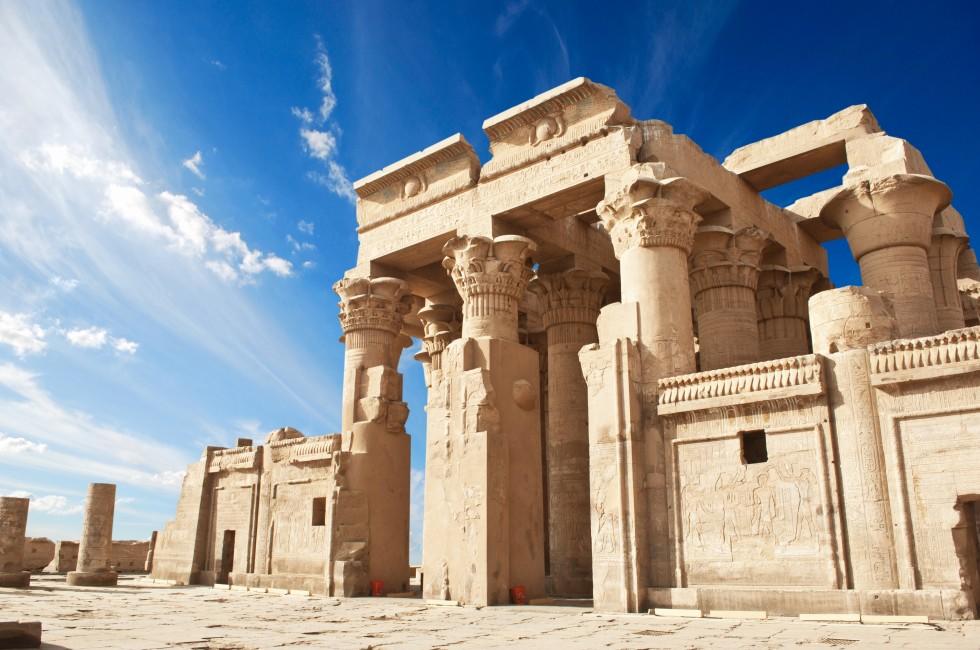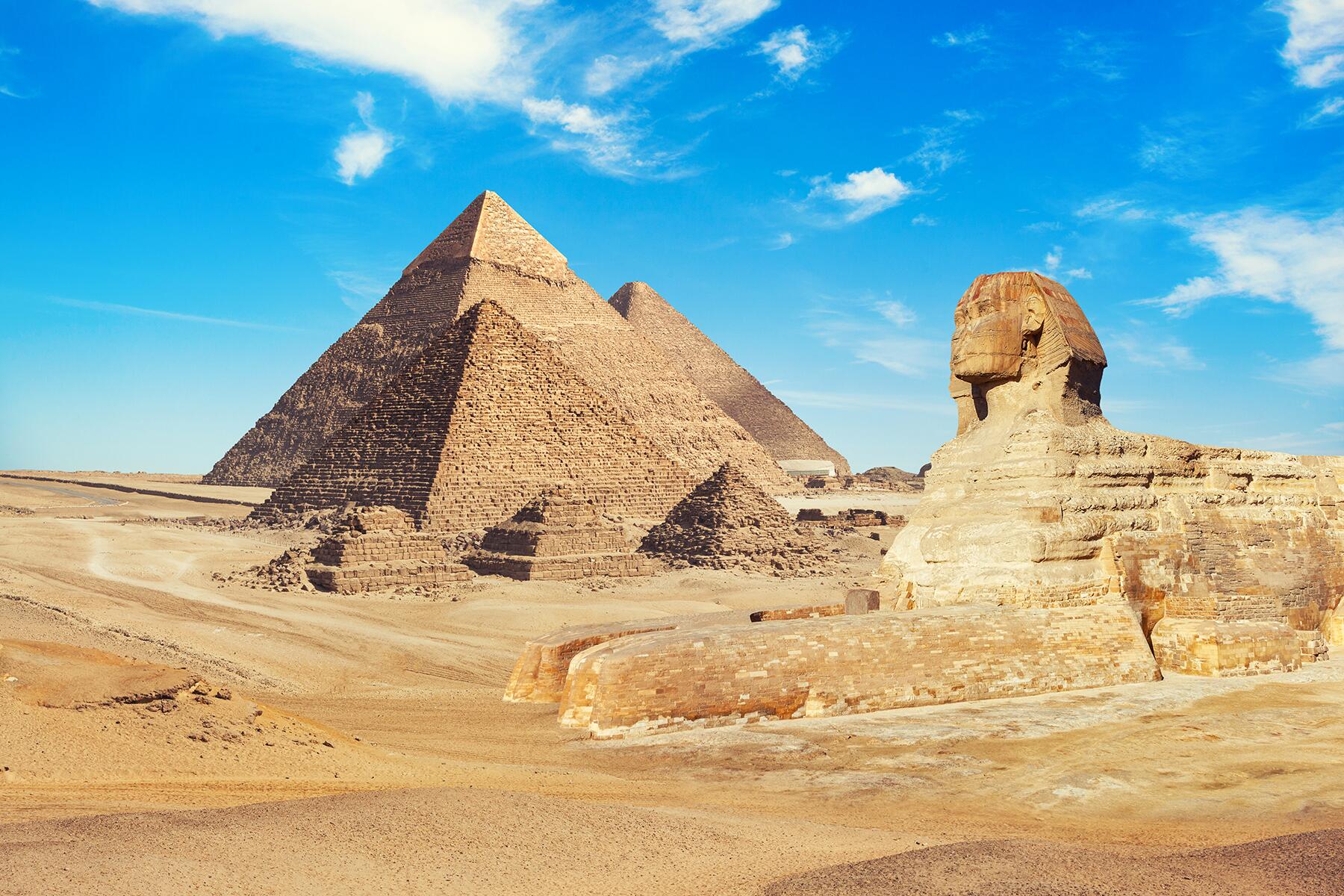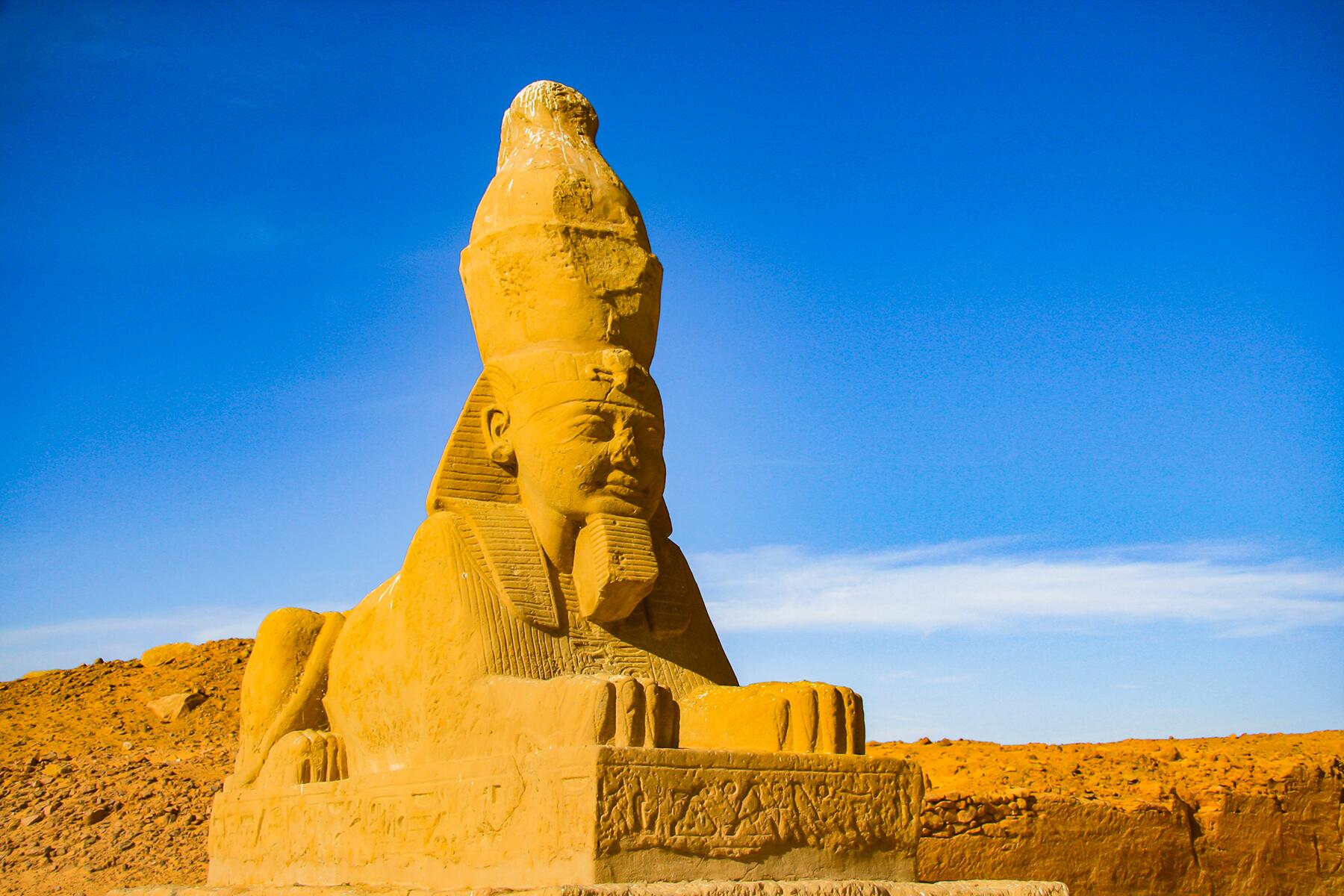Aswan and Lake Nasser
Aswan and Lake Nasser
Egyptians today take for granted modern control of the Nile: they open their faucets complacently, even if they don't always obtain the desired results. But in antiquity the river and its capricious annual floods were endowed with divinity and honored with all the force of the empire. The floodwaters acted as god and teacher, as the ancients learned the movements of the stars and devised calendars in order to predict the arrival of the inundation.
The Nile was the pharaohs' vehicle for empire building. It was the carriage road for troops, trade, and the massive granite blocks quarried in Aswan—the temples that line its banks from Al Minya to Abu Simbel glorify both the ancient gods and the Egyptians' ingenuity in putting the river's power and wealth to work. The river also made ag...
Read MoreEgyptians today take for granted modern control of the Nile: they open their faucets complacently, even if they don't always obtain the desired results. But in antiquity the river and its capricious annual floods were endowed with divinity and honored with all the force of the empire. The floodwaters acted as god and teacher, as the ancients learned the movements of the stars and devised calendars in order to predict the arrival of the inundation.
The Nile was the pharaohs' vehicle for empire building. It was the carriage road for troops, trade, and the massive granite blocks quarried in Aswan—the temples that line its banks from Al Minya to Abu Simbel glorify both the ancient gods and the Egyptians' ingenuity in putting the river's power and wealth to work. The river also made agriculture and the feeding of the population—the workforce—so easy: Herodotus noted in 460 BC that the Egyptians "gather in the fruits of the earth with less labor than any other people." Having mastered several straightforward irrigation techniques still in use today, farmers sowed their seeds and harvested two annual crops from the rich silt that the floods left behind.
No other river and no other ancient civilization have so fired the imagination of the modern West. But, aside from the works of ancient Greek, Roman, and Arab historians, and an antagonistic contact during the Crusades, the West remained essentially ignorant of Islamic culture and the marvels of the pharaohs until the late 1700s. And the people of the Upper Nile lived in relative isolation, working the land as they had for millennia.
In 1902 the British built the first Aswan dam to conserve late-summer floodwaters for the low-water season and increase agricultural output. As the population grew, these reserves became insufficient. The building of the Aswan High Dam in the 1960s altered the river's character dramatically, putting an end to the seemingly eternal and sometimes devastating annual floods. But the dams are just technological updates on what men have been doing for ages: tapping the river's power.
Today, the river remains the lifeblood of the country, but for most visitors it is first and foremost a leisure facility, the now benign waters allowing easy access to Egypt's most magnificent ancient monuments.










